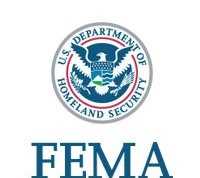Homeless Plaintiffs Seek Emergency Federal Court Order to Stop Towing and Impoundment of Vehicle Homes during COVID-19
Washington, D.C. – RealEstateRama – People living in vehicles in the City of San Diego—many with disabilities that increase the risk of serious illness or death from COVID-19—seek an emergency court order preventing the City from criminalizing living in vehicles and to stop towing and impoundment of vehicle homes during the COVID-19 outbreak. Represented by the National Law Center on Homelessness & Poverty (“Law Center”), Disability Rights California, Disability Rights Advocates, and pro bono counsel, including Fish & Richardson LLP, plaintiffs filed a request for a temporary restraining order in federal district court in San Diego yesterday evening.

The Centers for Disease Control and Prevention (“CDC”) issued guidance to practice physical distancing and frequent handwashing during the outbreak of COVID-19. A lack of housing makes following this guidance difficult, due to a lack of access to hygiene facilities—a problem that has worsened with the mass closures of businesses—and a lack of private shelter options.
Plaintiffs’ ability to self-isolate depends on keeping their vehicles—the only shelter they have. Yet, the City continues to cite and threaten arrests for vehicle habitation, and to impound vehicle homes including RVs that have working sanitation, such as running water for handwashing and private toilets. Plaintiffs argue that the City’s actions increase their risk of being exposed to the coronavirus, and will further the spread of COVID-19, much like what happened during the City’s Hepatitis A outbreak in 2017.
“San Diego’s policies not only harm people living in their vehicles—as homes of last resort–they also contribute to the spread of disease by forcing them to frequently move throughout the City to avoid arrest, ticketing, and towing and impoundment of their vehicles,” said Maria Foscarinis, Executive Director of the Law Center. “The City’s practice of impounding vehicle homes removes our clients’ best and often only option for sheltering in place, putting them at risk of illness and death.”
Medical experts with experience treating homeless populations filed declarations in support of the plaintiffs stating that the “best way” to mitigate the spread of COVID-19 is to ensure that Plaintiffs can shelter in place in their vehicles with access to clean restrooms, showers, and waste disposal stations. Experts also point to CDC guidance to warn that emergency shelters are not an adequate replacement for the private shelter offered by vehicles.
“Congregate emergency shelters expose people to communicable disease, infestations, and parasites that are more easily spread in crowded conditions,” stated Dr. Elizabeth Frye, Director of Psychiatry and Street Medicine at Mercy Care, an Atlanta-based FQHC focused on homeless health care. “[T]hese factors contribute to the spreading of diseases such as tuberculosis, influenza, and COVID-19.” Concerns about the spread of COVID-19 in homeless shelters have increased as shelters in cities like San Francisco and Boston have reported widespread infection.
The motion was filed in federal court in the U.S. District Court for the Southern District of California in Bloom v. City of San Diego.
###
The National Law Center on Homelessness & Poverty (the Law Center) is the only national organization dedicated solely to using the power of the law to prevent and end homelessness. With the support of a large network of pro bono lawyers, we address the immediate and long-term needs of people who are homeless or at risk through outreach and training, advocacy, impact litigation, and public education.
Contact: Crys Letona
















